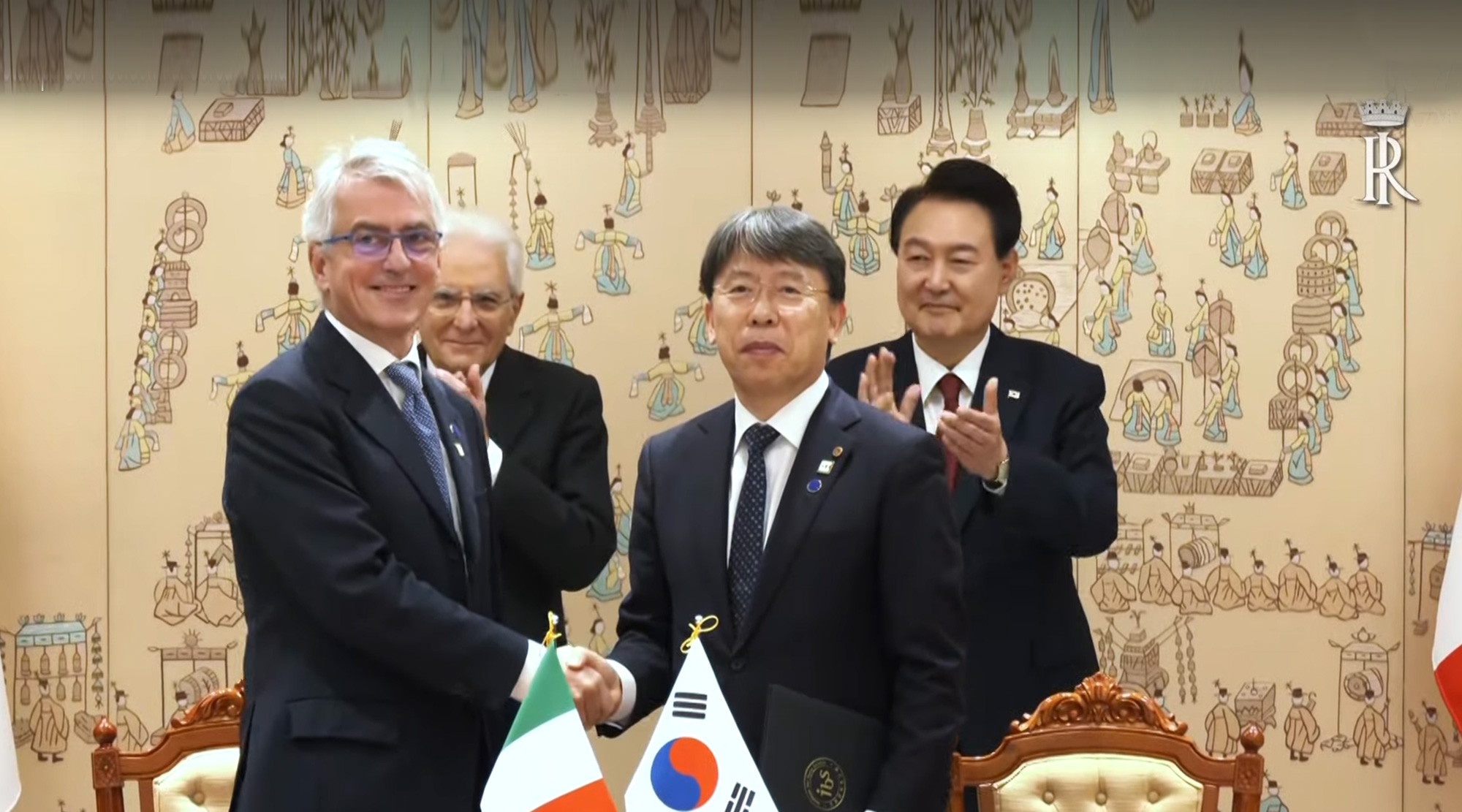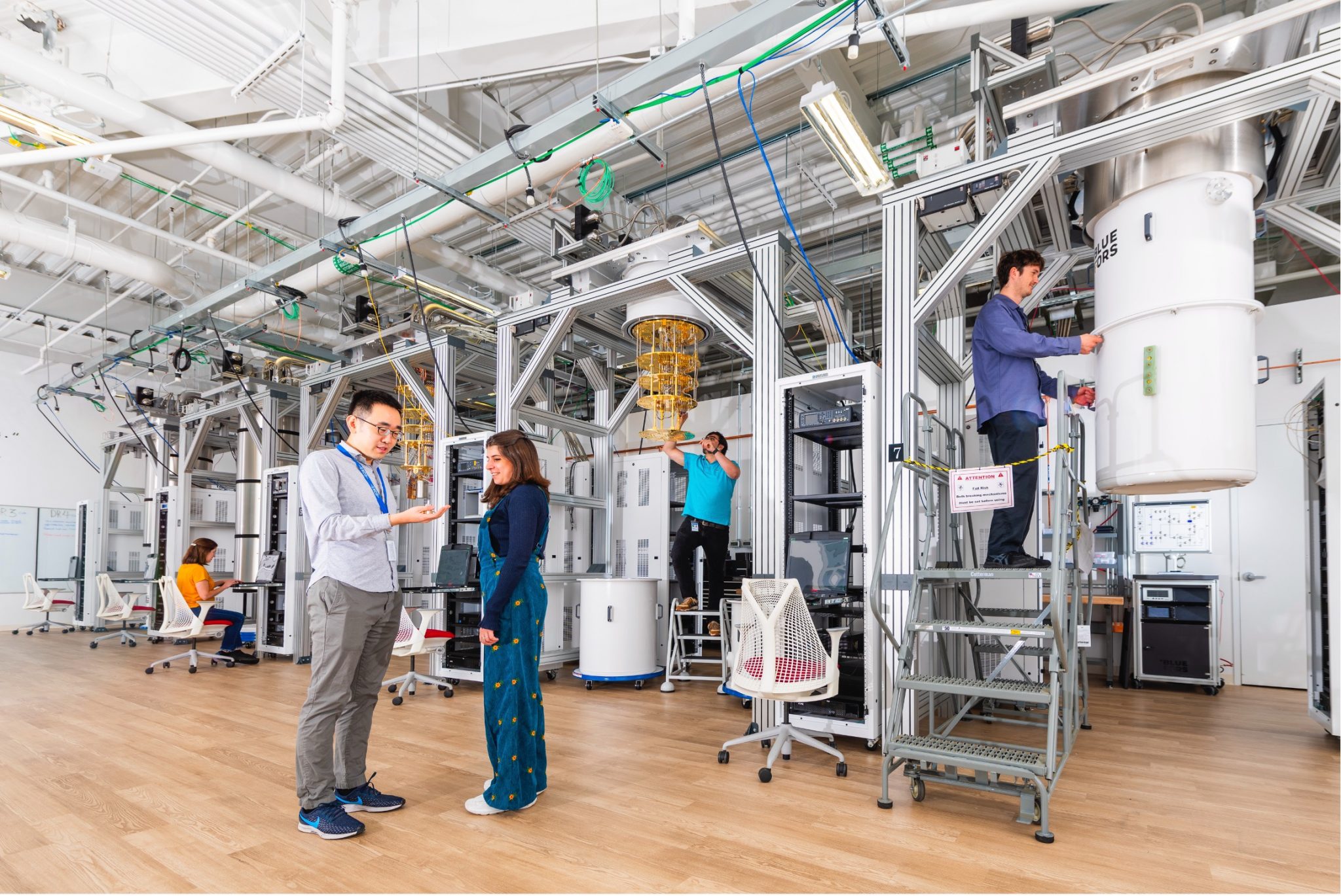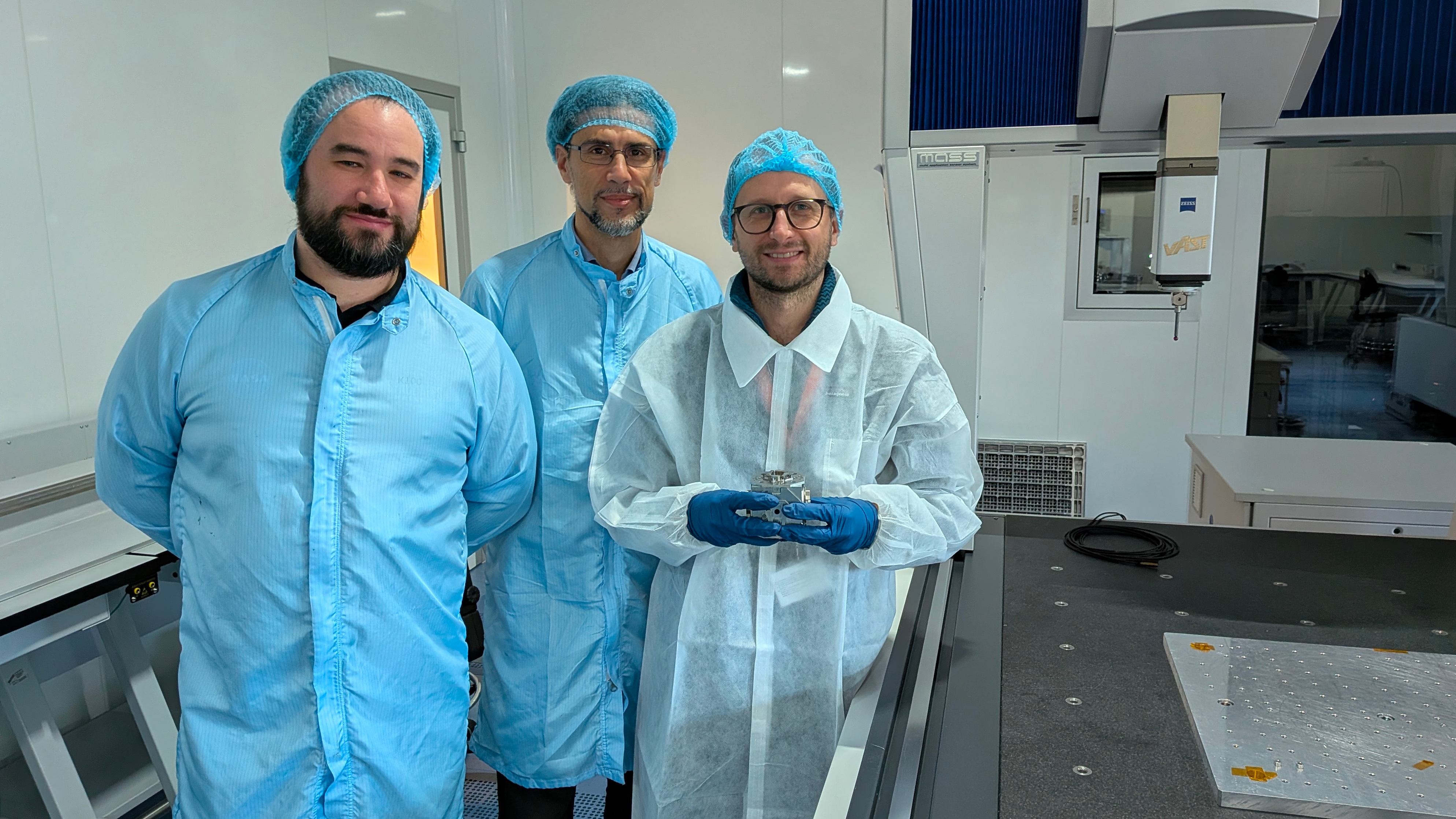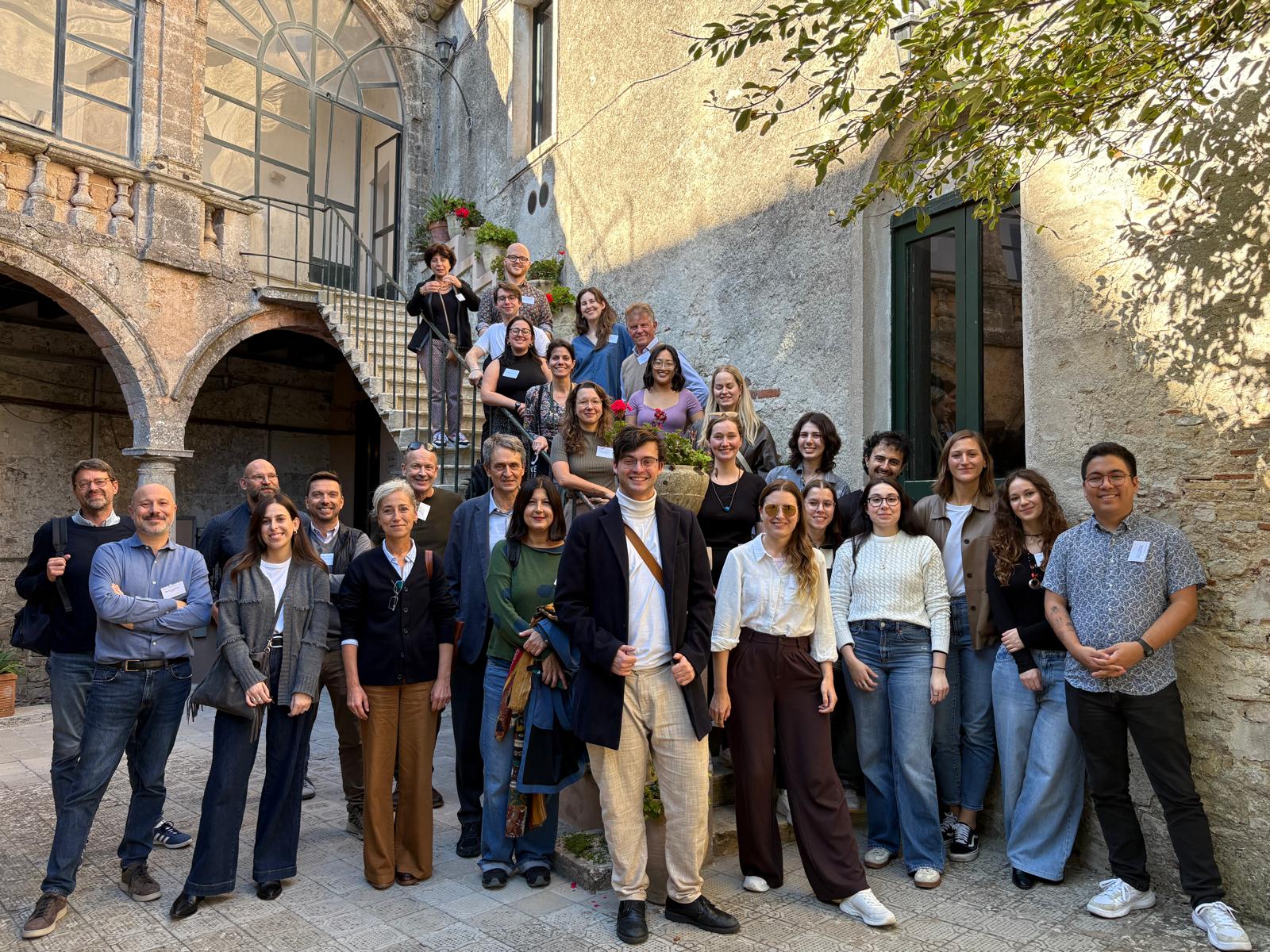 On 8 November, in Seoul, INFN signed an agreement with the Institute for Basic Science (IBS) of the Republic of Korea for collaboration in basic research in the field of nuclear, subnuclear, and astroparticle physics and the physics of gravitational waves. Jointly signed by Antonio Zoccoli, president of INFN, and Noh Do Young, president of the IBS, the agreement was part of the state visit of the President of the Italian Republic, Sergio Mattarella, to the Republic of Korea, in the presence of President Mattarella and the Korean President Yoon Suk Yeol. INFN participated in the state visit as part of the Italian delegation in the context of scientific and technological cooperation agreements signed by Italy and the Republic of Korea. Through the memorandum of understanding that was signed, INFN and IBS commit to collaborate in advancing science and knowledge, synergistically promoting sharing information, technologies, equipment and tools, and supporting the exchange of researchers engaged in research and development projects, with a special focus on young people.
On 8 November, in Seoul, INFN signed an agreement with the Institute for Basic Science (IBS) of the Republic of Korea for collaboration in basic research in the field of nuclear, subnuclear, and astroparticle physics and the physics of gravitational waves. Jointly signed by Antonio Zoccoli, president of INFN, and Noh Do Young, president of the IBS, the agreement was part of the state visit of the President of the Italian Republic, Sergio Mattarella, to the Republic of Korea, in the presence of President Mattarella and the Korean President Yoon Suk Yeol. INFN participated in the state visit as part of the Italian delegation in the context of scientific and technological cooperation agreements signed by Italy and the Republic of Korea. Through the memorandum of understanding that was signed, INFN and IBS commit to collaborate in advancing science and knowledge, synergistically promoting sharing information, technologies, equipment and tools, and supporting the exchange of researchers engaged in research and development projects, with a special focus on young people.





